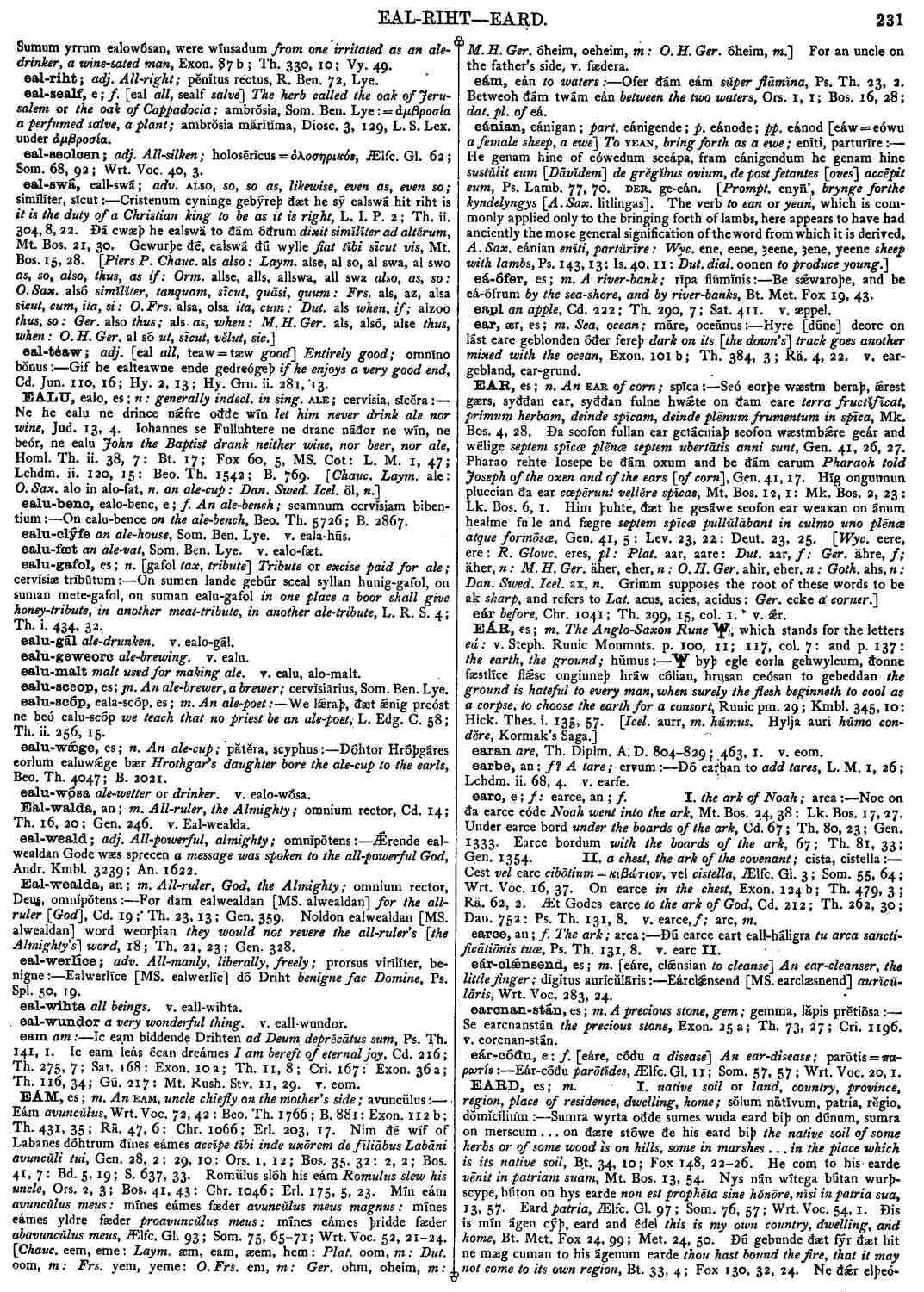EAR
- noun [ neuter ]
-
Seó eorþe wæstm beraþ, ǽrest gærs, syððan ear, syððan fulne hwǽte on ðam eare
terra fructĭfĭcat, primum herbam, deinde spīcam, deinde plēnum frumentum in spīca,
- Mk. Bos. 4, 28.
-
Ða seofon fullan ear getácniaþ seofon wæstmbǽre geár and wélige
septem spīcæ plēnæ septem ubertātis anni sunt,
- Gen. 41, 26, 27.
-
Pharao rehte Iosepe be ðám oxum and be ðám earum
Pharaoh told Joseph of the oxen and of the ears [of corn ],
- Gen. 41, 17.
-
Híg ongunnun pluccian ða ear
cœpērunt vellĕre spīcas,
- Mt. Bos. 12, 1: Mk. Bos. 2, 23: Lk. Bos. 6, 1.
-
Him þuhte, ðæt he gesáwe seofon ear weaxan on ánum healme fulle and fægre
septem spīcæ pullŭlābant in culmo uno plēnæ atque formōsæ,
- Gen. 41, 5: Lev. 23, 22: Deut. 23, 25.
Bosworth, Joseph. “EAR.” In An Anglo-Saxon Dictionary Online, edited by Thomas Northcote Toller, Christ Sean, and Ondřej Tichy. Prague: Faculty of Arts, Charles University, 2014. https://bosworthtoller.com/8571.
Checked: 1